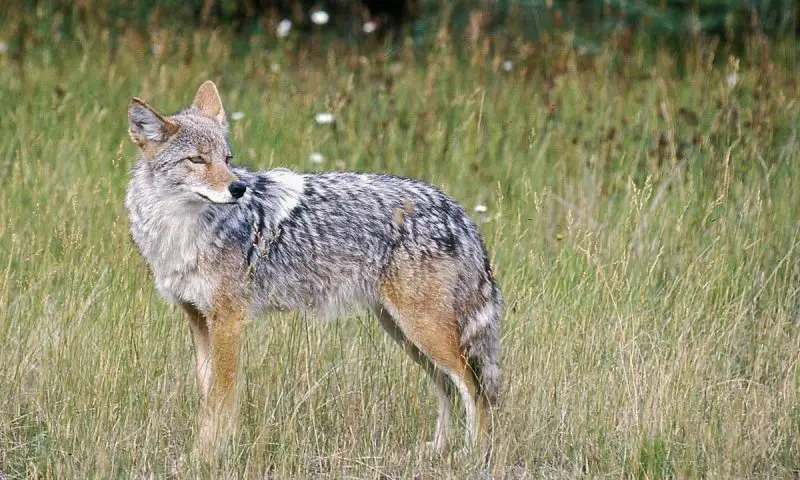Coyotes are one of the most adaptable wild animals in North America, thriving in both rural and urban areas of California. While many residents appreciate their role in the ecosystem, others see them as threats to livestock, pets, or property.
This often raises an important question: Is it legal to kill a coyote in California? The answer isn’t as simple as yes or no—it depends on where, why, and how the act occurs.
This article explores California’s wildlife laws, hunting regulations, and ethical considerations around coyote control.
Understanding Coyote Behavior and Presence in California

Coyotes (Canis latrans) are native to North America and have expanded their range across almost every region of California—from the deserts of the south to the forests of the north and the suburbs of Los Angeles. They are intelligent, opportunistic predators, known for their high adaptability and ability to survive near humans.
In California, coyotes typically feed on small mammals like rabbits, rodents, and sometimes livestock or pets. They are mostly nocturnal but have adapted to hunt and roam even during the day in residential neighborhoods. The increase in coyote sightings has led to growing concerns among property owners and farmers.
Their presence is not just an ecological fact—it has legal implications. Since coyotes are classified as nongame mammals, their control and hunting fall under specific laws managed by the California Department of Fish and Wildlife (CDFW).
California Laws on Killing Coyotes
California law classifies coyotes as nongame mammals, which means they can be taken year-round. However, this does not mean they can be killed anywhere, anytime, or by any method. The legal framework involves several state regulations that control how residents can respond to coyote threats.
According to California Fish and Game Code Section 4152, property owners and tenants may kill coyotes if they are causing damage to crops, livestock, or property. This law allows some flexibility for landowners to protect their livelihood, but it comes with conditions on the manner and context of the killing.
Recreational hunters can also legally hunt coyotes without a specific season, but they must comply with all hunting regulations, including the possession of a valid California hunting license. Importantly, coyotes cannot be trapped or poisoned without permits, as those methods fall under separate regulations.
In short, while killing coyotes can be legal, it must be done under specific lawful circumstances. Understanding these laws is essential to avoid criminal charges or penalties.
Hunting Coyotes in California: What You Should Know
California allows the hunting of coyotes year-round with no bag limit. This is because coyotes are not protected as game species—they are considered nongame, and therefore, not subject to seasonal restrictions. However, hunters must follow all firearm safety and location-specific laws.
License Requirements
Any person who hunts coyotes in California must have a valid state hunting license. This applies whether hunting takes place on private land or public hunting grounds. Residents and non-residents alike are required to carry their licenses at all times during hunting activities.
Legal Hunting Methods
The California Department of Fish and Wildlife permits the use of rifles, shotguns, and archery equipment for coyote hunting. However, certain counties and cities may have local firearm discharge restrictions. For instance, within city limits, shooting a firearm—even for hunting—can be illegal.
Electronic calls and decoys are allowed when hunting coyotes, which helps attract them from a distance. Night hunting is permitted in certain areas, but hunters must use appropriate lighting equipment and comply with nighttime hunting regulations.
Areas Where Hunting Is Allowed
Coyotes can be hunted on most public lands that allow hunting, such as Bureau of Land Management (BLM) lands, state forests, and designated wildlife areas. However, always check for specific area regulations since some state parks and reserves prohibit any form of hunting.
Restrictions on Killing Coyotes
Although coyotes can legally be hunted or controlled, there are several restrictions that limit how and where they may be killed. These restrictions aim to maintain public safety, ethical standards, and ecological balance.
- No Poisoning Allowed – The use of poisons or toxic baits to kill coyotes is illegal in California. Such actions can harm other wildlife, domestic animals, and even humans.
- No Illegal Trapping – Trapping coyotes without a proper permit is a violation of state and federal laws. Traps that cause unnecessary suffering or are placed in public areas are strictly prohibited.
- Firearm Restrictions – Discharging firearms within 150 yards of any occupied dwelling, barn, or stable without permission is illegal.
- No Killing in Certain Protected Areas – State and national parks, as well as designated wildlife sanctuaries, are off-limits for hunting or killing coyotes.
- Animal Cruelty Laws – Even if killing is legal, it must be done humanely. Deliberate torture or unnecessary suffering of animals can lead to felony charges.
These regulations demonstrate that while control is allowed, California’s wildlife management policies still emphasize humane and safe practices.
When Property Owners Can Kill Coyotes
California’s Fish and Game Code provides specific protections for property owners and livestock producers. Under Section 4152, property owners, tenants, or employees can kill coyotes that are damaging or threatening crops, poultry, or livestock. However, this authority doesn’t mean individuals can indiscriminately shoot coyotes in residential neighborhoods.
The law requires that any lethal action be justifiable—there must be actual or imminent damage. Property owners should also consider non-lethal control measures first, such as fencing, lighting, or using livestock guardian animals. Killing should be the last resort when preventive measures fail.
It’s also advisable to document any incidents of coyote attacks or property damage. In cases where repeated problems occur, contacting local wildlife officers ensures compliance with the law and avoids potential disputes.
Is It Legal to Kill Coyotes in Urban Areas?
Urban and suburban areas in California have seen an increase in coyote activity due to food availability and lack of natural predators. However, killing a coyote in these populated zones is highly restricted. Most cities and counties prohibit the discharge of firearms within city limits, making it practically illegal to shoot coyotes in residential areas.
In such cases, residents are encouraged to contact Animal Control or the California Department of Fish and Wildlife for assistance. Professional trappers licensed by CDFW may be authorized to remove problem coyotes. Self-defense against aggressive coyotes is allowed only if there’s an immediate and clear threat to human life.
In short, while the state allows coyote control, city ordinances often make it illegal to kill them in populated neighborhoods without official authorization.
Ethical Considerations and Wildlife Balance
While killing coyotes may seem like an easy solution to protect pets or livestock, wildlife experts caution against over-control. Coyotes play a vital role in maintaining ecological balance by controlling rodent populations and scavenging carrion. Reducing their numbers can lead to unexpected ecological consequences.
Moreover, studies show that killing large numbers of coyotes can actually lead to an increase in their population. Coyotes respond to population pressure by having larger litters and expanding their territories. Therefore, non-lethal control methods such as securing garbage, removing outdoor pet food, and using motion lights are often more effective in the long term.
Responsible coexistence, rather than eradication, is the key message promoted by California’s wildlife authorities.
Legal Penalties for Unlawful Killing of Coyotes
Killing a coyote illegally can result in serious penalties. Violations of California’s Fish and Game Code may lead to fines, imprisonment, or both, depending on the severity of the offense. For instance:
- Hunting without a valid license can result in fines of up to $1,000 and potential jail time.
- Using poisons or traps without a permit may lead to misdemeanor or felony charges under state and federal law.
- Shooting within restricted zones can lead to both wildlife and public safety violations.
In addition, any weapon used in the commission of an illegal act may be confiscated by authorities. Repeated offenders may lose their hunting privileges permanently. Therefore, understanding and following the law is not only about ethics—it’s also a matter of personal protection against legal consequences.
Non-Lethal Coyote Control Methods
Many Californians prefer to deter coyotes without killing them. Fortunately, there are several proven methods that help reduce coyote interactions while keeping both humans and wildlife safe.
- Secure Trash and Food Sources – Coyotes are opportunistic feeders; eliminating easy food access is one of the most effective deterrents.
- Protect Pets – Keep pets indoors or supervise them, especially at dawn and dusk when coyotes are most active.
- Install Fencing – Tall, smooth fences at least six feet high can help keep coyotes out of yards and livestock areas.
- Use Motion-Activated Lights and Alarms – Coyotes are cautious by nature, and sudden noise or light often scares them away.
- Hazing Techniques – Shouting, waving arms, or using noise-makers can teach coyotes to keep their distance from people.
These non-lethal methods not only comply with California law but also promote long-term coexistence.
How to Report a Coyote Problem
If coyotes are becoming a serious problem in your neighborhood, the best step is to contact the California Department of Fish and Wildlife (CDFW) or your local Animal Control office. They can evaluate the situation and decide whether trapping or relocation is necessary. In some cases, CDFW issues special depredation permits for property owners facing repeated livestock losses.
Always avoid taking matters into your own hands unless there’s a clear legal justification. Reporting to authorities ensures that any control action is handled safely, ethically, and within legal limits.
Frequently Asked Questions
Can I shoot a coyote on my property in California?
Yes, you can if the coyote poses a direct threat to your livestock or property. However, firearm discharge laws must still be respected, especially within city or residential limits.
Are coyotes protected animals in California?
No, coyotes are classified as nongame mammals. They are not protected like endangered or game species, but laws still regulate how they can be killed.
Can I kill a coyote if it attacks my pet?
You may act in defense of your pet if the attack is happening or imminent. However, after the incident, it’s best to report the event to local authorities to ensure compliance with regulations.
Can I trap or poison coyotes?
No. Trapping and poisoning coyotes without proper permits are illegal in California. Only licensed professionals or authorized agents can use these methods.
Is there a bounty or reward for killing coyotes?
No, California does not offer any bounty programs for coyotes. In fact, indiscriminate killing is discouraged due to ecological and ethical concerns.
The Bottom Line: Legal but Regulated
So, is it legal to kill a coyote in California? Yes—but with limitations. Coyotes are considered nongame mammals, meaning they can be hunted or killed under specific lawful conditions. However, the method, location, and intent are crucial factors that determine legality. Using poisons, trapping without permits, or discharging firearms in restricted areas can all lead to criminal charges.
Ultimately, the state encourages responsible management rather than widespread killing. Understanding local laws, practicing safe deterrent measures, and respecting wildlife are the best ways to coexist with California’s resilient coyotes.






